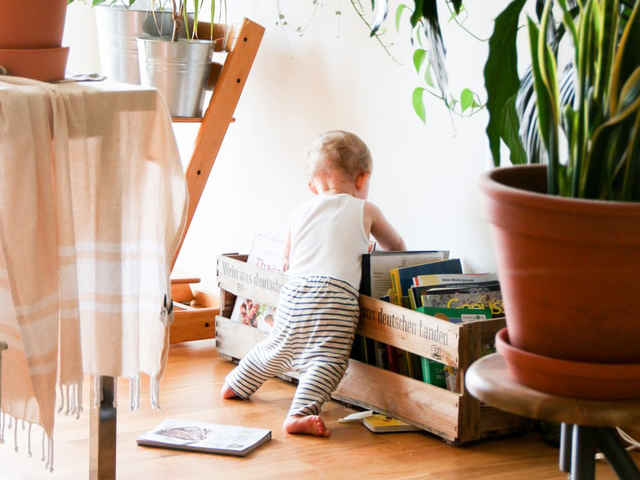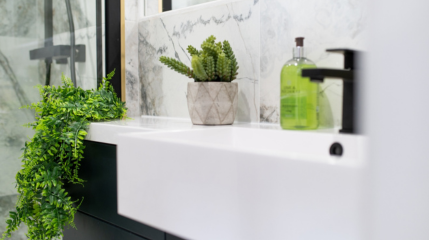
How to childproof your rental home - Part 1 of 2
 There is an ever-increasing number of families living in rental accommodation, meaning more and more parents are looking for ways to make their rented property family-friendly and extra safe for their children.
There is an ever-increasing number of families living in rental accommodation, meaning more and more parents are looking for ways to make their rented property family-friendly and extra safe for their children.
Ensuring the home environment is secure, safe and hazard-free is one of many super important responsibilities of a parent, but a lot of responsibility is also shared with the landlord.
In most cases repairs, upgrades and modifications cannot be carried out by tenants alone. It’s the responsibility of the landlord to make sure the property is completely safe for use and free of any health hazards, and if any work is to be done to change the property or improve its safety it’ll have to go through the landlord. With that said, aside from routine property checks that should be conducted at least a couple of times a year, a landlord also relies on their tenants to closely monitor the condition of the property at all other times and to quickly raise any queries or report any issues.
Your children are your priority and that will come hand-in-hand with a rental home that delivers everything you need. This makes it important to maintain strong communication and a healthy relationship with your landlord, and to fully understand your rights with regards to the health and safety of your family while living in the property.
Common serious issues in rental properties
One of the most commonly reported issues in a rental property is mould and damp - something that can prove harmful to our health, particularly to a baby or child. You should report mould or damp to your landlord or letting agent immediately so that you can both monitor the situation and begin taking the necessary steps to tackle the problem.
The first step you should take is seeking ways to improve ventilation - open windows to air rooms that are vulnerable to mould and damp where possible and investigate whether ventilation systems need to be installed, such as in bathrooms and kitchens. Drying wet laundry indoors is another culprit, so try to time it so that you can dry them outdoors.
If you have reason to believe the problem is caused by a more serious issue such as penetrating or rising damp, you’ll want to get onto your landlords case so that specialists can be brought in to assess the situation. There could be cracks or holes on the exterior that need to be correctly filled, or windows and doors may need resealing.
Exposed wires, leaks and unsafe sockets are other common problems in rental properties. You should ask your landlord to repair these issues as soon as possible as you have a right to live in a safe property that’s in a good state of repair. Hopefully your landlord will comply and quickly rectify the issues, but do take photographs with timestamps just incase you need to use them as evidence at a later date.
Safety certificates for gas appliances also often pass their expiry date if a landlord fails to take note of them, so be double safe by checking them yourself. If the gas safety certificate is older than 12 months your landlord will be in breach of their obligations and you won’t know for sure that your appliances are as safe as they need to be for you and your family.
Another common problem that could lead to disastrous consequences are smoke and carbon monoxide alarms in non-working order. In most cases a battery replacement it all it takes, and most models will alert you when this is due by periodically sounding, but that shouldn’t stop you from testing them very regularly to ensure they remain in perfect working condition.
High risk problems in the home for young children
The NHS website offers priceless baby and toddler safety advice that’s well worth reading - you can then take what applies to you and incorporate it into your rental home. High risk problems to babies and children in the home include, but are not limited to:
- Wires that are exposed and unsecured/loose power sockets
- Burns and scalds from cooking or heating appliances and hot water
- Poisoning from various household chemicals
- Trips or falls from unsecured staircases
- Choking hazards from small household objects and other miscellaneous items
Many of these high risks can be greatly reduced by simply developing safety habits around the home. Be aware of all potential hazards by reading labels and ensuring that anything that could be harmful to your children is stored well out of reach.
Be sure to check out part 2 for more tips and advice related to childproofing your rental home.
Are you looking for a suitable family rental property in Cardiff that ticks all the boxes? If so, get in touch with our expert lettings team here at CPS Homes to find out how we can help. Call us today on 02920 668585, e-mail enquiries@cpshomes.co.uk or pop into one of our three branches.
The information contained within this article was correct at the date of publishing and is not guaranteed to remain correct in the present day.


